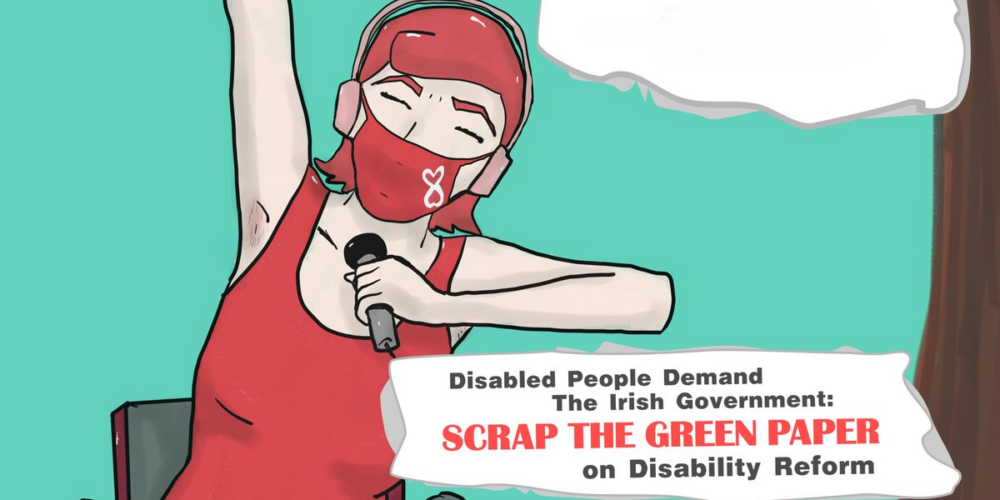Following the success of the “No” vote on the Care Amendment it is time to speak of the next attack on people with disabilities, the Green Paper on Disability Reform. This paper was proposed in the latter half of 2023 and since has had to face down a number of protests from a collection of disabilities rights groups and activists.
This Green Paper proposes to turn the current ineffective disabilities payment system – one that already discriminates, marginalises, and bullies disabled people – into one that would force people to fight for their payment by having them demonstrate the “level” of their disability, akin to the British system.
The Work Capability Assessment used in the British system is one where the “expertise” of an assessor is placed paramount over the disabled person’s own understanding of their capabilities or their doctor’s assessment. In a one-hour meeting people are made to sit, stand and move at the behest of an assessor who may well have started ticking boxes if the testee made it to the test room. Someone being denied a payment for having made it up a flight of stairs to the assessment room is not unheard of.
Our government would have us believe that this change to disability payments will be of benefit to those that it affects, but we know that this is another insidious method of cutting allowances for those who are deemed to be undeserving of state payments. This Green Paper reform is another thinly veiled attempt at labour activation, which necessitates the removal of rights to state payments from those reliant on them. An essential missing component of this plan is that there have been no obligations placed on employers to hire people who have been removed from these payments or any attempts made to accommodate them.
This paper fails to note that 34% of all disabled people in Ireland are currently already in long-term paid employment, and that many of these people will be familiar with the phrase “too sick to stop work”. The expenses associated with long term illness and/or disability can make surviving on a disability payment next to impossible and for those that currently do, the answer is not to force them into a jobs market that will punish them for their illness/disability.
The paper does not confront the reality that the high rate of poverty that many disabled people face is linked to the lack of support they receive from the state, both in terms of insufficient existing payments and the wider structural issues that marginalise them. This includes lack of access to transport, learning supports, healthcare supports, and assistance in living a decent quality of life while retaining autonomy and independence.
Respect for the contributions people with disabilities make to our society should not be limited by the parameters of the capitalist worldview, which sees no value where no profit is to be made.
The question of how to practically address the marginalisation of persons with disabilities, or indeed any marginalised group, often has the same answer. An answer that will serve the interests of the entirety of our class: where services and the right to access them is based on need, not how much money one makes.
We demand public housing that is safe, accessible, with a security of tenure and a fair differential rent system; public transport that is maintained, that facilitates the travel patterns of those that rely on it, where all passengers can be welcomed; and a healthcare system that engages in preventative care and assistance as well as immediate treatment.
Ultimately these demands cannot be met under capitalism. A society that values all that each of us have to offer as humans requires a humane perspective that is contradictory to the capitalist system. Our struggles are intersectional because the answers are intersectional. No one issue can be faced alone as the root cause of our struggles is capitalism.
As wrote Marx, in his Critique of the Gotha Programme:
“From each according to their abilities, to each according to their needs.”






